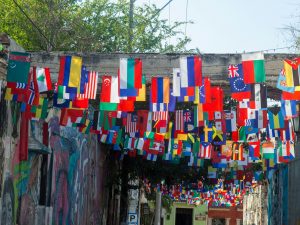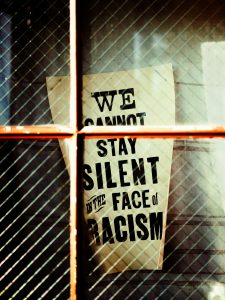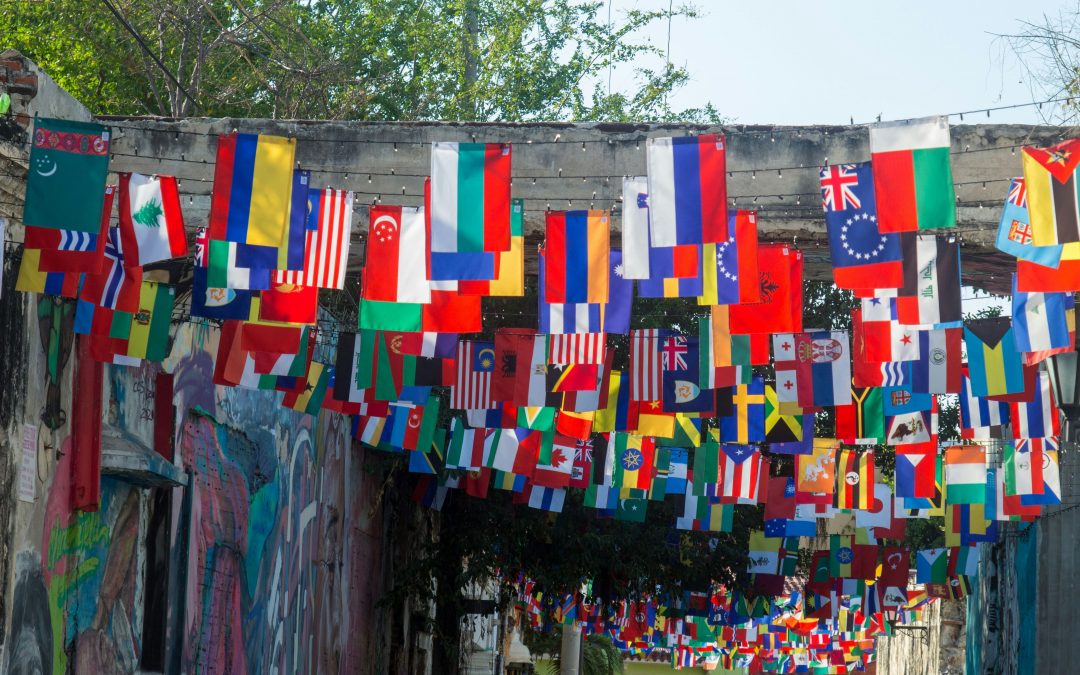Why we have decided to talk about Interculturalism, Faith and Racial Justice in Leeds
Dwayne Hutchinson, Faith and Racial Justice Lead at Leeds Church Institute, reflects on our upcoming event which puts Faith, Racial Justice, and Interculturalism in dialogue with each other.

Recently, I have been learning more about interculturalism. A lot of my key learning comes from conversations with Paul Lancaster, MA in Global Leadership in Intercultural Context and Guest Lecturer at Leeds Trinity University, who has spent many years in this area of work.
During one of our conversations, he mentioned there is a difference between multiculturalism and interculturalism. Now, interculturalism was not a word or concept that I was familiar with, and I was interested in learning more.
As our conversations and meetings continue, I am gaining significant understanding about the concepts of interculturalism, which helps me to realise that interculturalism can be a beneficial approach that works alongside faith and racial justice, to challenge racism and racial discrimination in churches, local communities and across the city.
In recent months, I have seen interculturalism initiatives separated from racial justice and vice versa. However, from the conversations with Paul Lancaster, we began to explore the Venn diagram between interculturalism and racial justice, and how faith plays a part in both areas of work. Furthermore, during my further learning about Interculturalism with Phil Thomas and Laura Palmer from Transformations Leeds, a charity working in intercultural spaces with international students across the city, my learning about how interculturalism can work alongside racial justice continues to solidify as I understand how they can work together.
I have realised people can sometimes think they are doing interculturalism that works alongside racial justice. However, once I began to learn some of the practices that were thought to be intercultural, it was multiculturalism that was being practiced, not interculturalism. Although it could appear that multiculturalism is challenging racism and racial discrimination to many, there are essential insights and practices to draw from interculturalism that support racial justice in ways that multiculturalism does not.
Paul Lancaster explains the difference between multiculturalism and interculturalism in this way:
“Society in the UK has become increasingly multicultural/multiethnic and this is seen particularly in many churches. Multiculturalism not only describes this, but it has been government policy. However Western/European culture and mindsets still predominate, which at best have only produced co-existence. It has been stated by politicians in recent years that ‘multiculturalism has failed’.
Increasingly the term ‘intercultural’ has been adopted as a way forward. It is characterised by intentionally creating spaces where there is deep, meaningful contact and communication, with mutual exchange of ideas. No-one is left unchanged because everyone learns from each other, which opens the way for something new to emerge.”
While they may appear to be very similar in description, multiculturalism and interculturalism differ in their approach. Interculturalism provides a true feeling of belonging for people living in cultures that are different from their place of birth and upbringing.

After conversations with Paul Lancaster and the Leeds Church Institute’s Churches Against Racism Group, we began to wonder who else may want and need to learn about interculturalism and how it can serve alongside racial justice. During further conversations with people, it became clear to me that interculturalism was not a phrase or methodology they knew about. It was usually confused with multiculturalism. Additionally, due to them not knowing about interculturalism, this meant they did not know about how it is linked to racial justice.
By deliberately bringing these two areas of work together for learning and discussions, alongside acknowledging their similarities and differences, people will have the opportunity to remove misconceptions and misunderstanding about interculturalism and multiculturalism, whilst learning about racial justice, and how to take appropriate action in this area.
Now, the faith element involves understanding how interculturalism and racial justice can serve churches and all denominations. For Christians to further understand about their brothers and sisters in Christ, and people in their local communities from different ethnicities and cultures, there must be a true understanding of their heritage and backgrounds, rather than just an acknowledgement of how their cultures differ. That’s multiculturalism.
As we continue to learn together about how we can continue to make our city a place of welcome for all ethnicities and challenge racism and racial discrimination, we must remain active in our learning about interculturalism, faith and racial justice. These three elements provide a solid foundation for creating unity in our city.
For those of you who would like to learn more about how interculturalism, faith and racial justice can help you and those within your local communities across your city, you are invited to attend the free Interculturalism, Faith and Racial Justice event on Monday 6th October, 6pm-9pm at the Chapeltown Community Wellbeing Hub, Leeds, in partnership with Leeds Trinity University and Transformations Leeds. Join us by signing up here.

